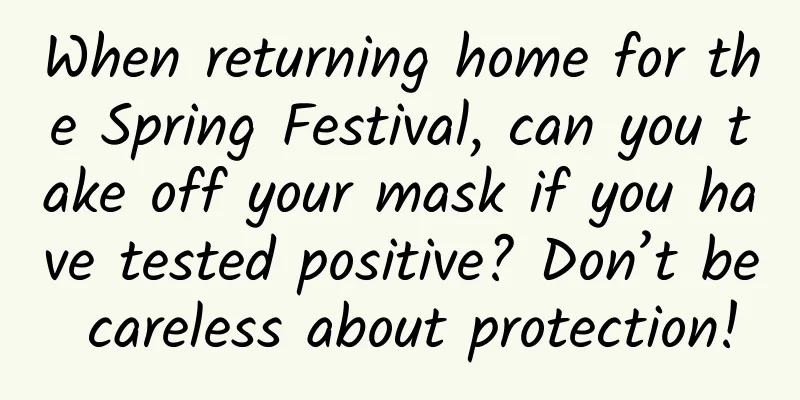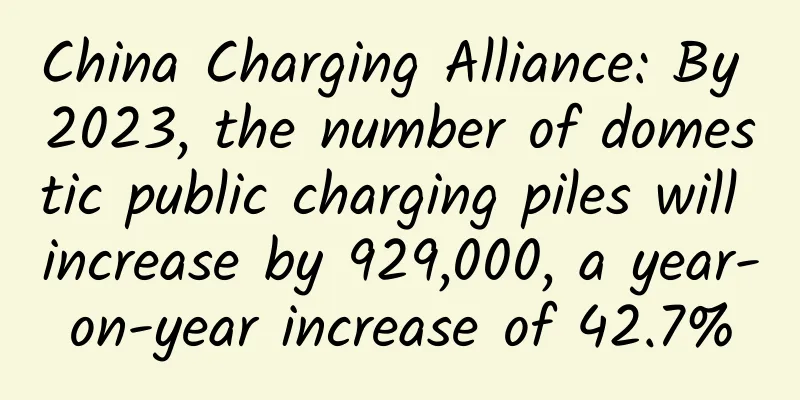When returning home for the Spring Festival, can you take off your mask if you have tested positive? Don’t be careless about protection!

|
What preparations should people returning home make in advance during the Spring Festival travel rush? After returning home, how should they take protective measures when visiting relatives and friends or gathering together? Copyright image, no permission to reprint 01 Can I take off my mask if I have tested positive? Yang Xiaobing, director of the Infectious Disease Prevention and Control Institute of the Wuhan Municipal Center for Disease Control and Prevention in Hubei Province, introduced that the current source of infection in society is uncertain, and people who have not been infected should take good personal protection. It is very important to wear masks when entering and leaving crowded places such as shopping malls and hospitals, and when taking closed transportation vehicles such as airplanes and trains. Yang Xiaobing introduced that after being infected with the new coronavirus, people with normal immune function will have a certain resistance to the new coronavirus, and the possibility of being infected with other Omicron variants again in a short period of time is small. However, winter and spring are also the peak seasons for respiratory infectious diseases such as influenza, so it is recommended not to downgrade personal protection to avoid being infected with other diseases just after being "healthy". In addition, after a long period of infection with the new coronavirus, the protective effect of antibodies decreases. If a strain with strong immune escape ability is encountered, it is not ruled out that a small number of recovered people, especially those with weakened immune systems, may be infected again. 02 Before returning home What preparations should be made? People who travel long distances or return home should make these preparations in advance: Copyright image, no permission to reprint
03 On the way home What should I pay attention to? ■ Public transport
Copyright image, no permission to reprint ■ Travel by car
When traveling by car, you should prepare appropriate medicines and protective supplies, including masks, wet wipes, hand sanitizer, common antipyretic drugs, etc. You should plan your route well, especially to understand the current epidemic situation at your destination.
Strengthen vehicle ventilation and disinfection. If you have some respiratory symptoms during travel, don't panic, you can use rapid antigen test kits for testing. If the test result is positive, a backup driver can be asked to drive the car so that the positive tester can get enough rest and recovery, and other people in the car should take good protection. If the symptoms of the symptomatic person are more serious, they should seek medical treatment nearby in time.
There are more people during the Spring Festival travel season, and you should wear a mask in the service areas of the highway and take protective measures, including washing your hands and avoiding more contact with other people to minimize the risk of respiratory infections. Copyright image, no permission to reprint When getting off the vehicle to rest at a service area, reduce your stay time; disinfect your hands when eating in the dining area; and wear a mask when paying through the manual window at the toll station. 04 After returning home What should I pay attention to? ■ Home protection After returning home, people who return home should strengthen self-health monitoring and pay close attention to the health of themselves and their families. When they first return home, they should take good self-protection measures and try to avoid contact with the elderly or people with underlying diseases at home. Copyright image, no permission to reprint ■ Visiting relatives and friends
Source: CCTV News The cover image and the images in this article are from the copyright library Reproduction of image content is not authorized |
<<: Pioneer 10: A tour of the planets
>>: Why does being cunning make people smarter?
Recommend
Operational Tips丨5 secrets of event operations!
Event operation is a job that any type of operati...
Will toothpaste develop "drug resistance"? Do you need to change it frequently?
Are you used to using the same toothpaste all the...
Breaking into hotels, strolling on the streets, crossing the Yangtze River...the wild boar City Walk finally got into big trouble!
In recent days, the news of "wild boars ente...
Tips for developing brainwashing advertising skills!
The dissemination and production of brainwash adv...
Fingerprint, face, iris, which one is the best in AI mobile phone identity recognition?
There are no two identical leaves or people in th...
B Station Home Marketing Insight Report
As the number of monthly active users of Bilibili...
Brand Promotion Guide on Station B!
Bilibili, a video content community that started ...
After analyzing more than 500 e-commerce applets, I discovered three major rules for becoming popular
This article first analyzes the reasons for the r...
The official iPhone system has been updated, and data can finally be migrated!
For iOS, which is perhaps the most user-friendly ...
Are the hard days of the color TV industry coming to an end?
On November 22, along with the release of the 201...
Which industries are suitable for Momo information flow? Promote industry analysis!
Mobile Internet is in a state of vigorous develop...
Event Operations | How to trigger an event with 30,000 people in 3 days with a budget of more than 3,000 yuan?
It's not a problem if the idea is old, it'...
E-commerce operations: 6 tips to teach you how to make e-commerce materials!
Although website material production is a very ba...
Where are the best cherry blossoms in China? Take this cherry blossom map
Cherry blossoms are a plant native to China. Wild...
What should I do if wasps build nests in my home in summer?
The thin-waisted wasp is a general term for insec...









